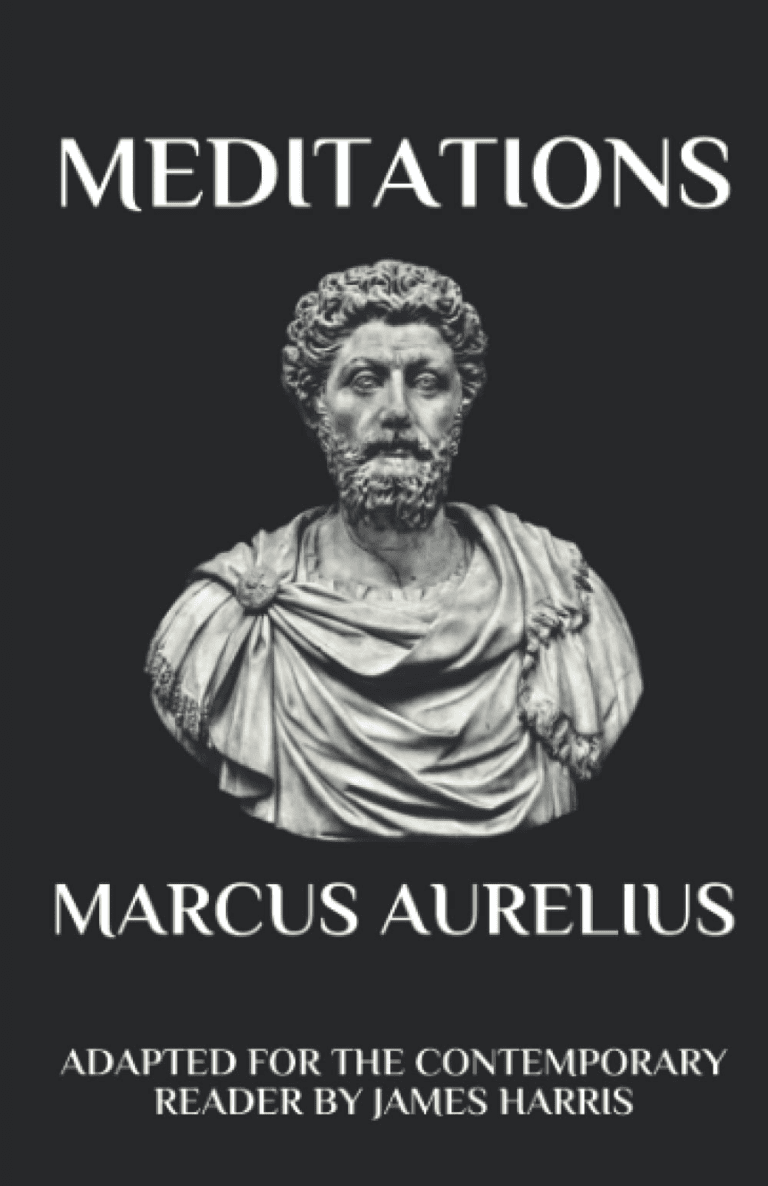The 13 Best Books on Existentialism

What is Existentialist philosophy?
Existentialism is a contemporary philosophical movement that has been gaining traction in recent years, with its focus on individual freedom and responsibility.
It encourages us to look beyond the traditional constraints of society and consider our own existence from an independent perspective.
With this in mind, it’s no surprise that many people are looking for books which explore existentialism further.
Here we will discuss some of the best books on existentialism currently available and provide brief descriptions of each one.
Existentialism is a multifaceted concept that can be explored from various angles.
For instance, it focuses on the idea of free will and encourages us to make our own choices as opposed to being bound by tradition or popular opinion.
This means that we must take responsibility for our actions and consider how they will affect our future and the lives of others.
Similarly, existentialism can be seen as a way of questioning our place in the world and exploring what it truly means to be alive.
Getting familiar with Existentialist thought
One of the best ways to learn more about existentialism is through reading books written by experts in the field.
Many people are intimidated by the complex literature of some existentialist philosophers.
One especially daunting example are the English translations of Friedrich Nietzsche, who wrote to a target audience of German intellectual elites.
Sifting through philosophical texts in order to find something approachable for the ordinary man(or woman) in a modern library can indeed be difficult.
Hence, I’ve put together a list of books for all levels of thinkers interested in this philosophical movement.
What makes these the best books on existentialism?
The criteria that these books are judged on is relatively vague, as many lines in philosophy are.
In my opinion, the makings of the best books on existentialism are either their legacy as source material, their cultural impact on thought, and their evolution of the original philosophy into a new thought, such as absurdism.
There may be a few books I didn’t manage to fit onto this list, and if you think so please let me know in the comments.
Which Existentialist Philosophers should I start with?
In my personal opinion, the first existential philosophy books a beginner should start with are the works of Jean-Paul Sartre and Albert Camus.
I feel like these are the most easily digestible texts on existentialism and the fact that they lived in the twentieth century should make their writing style a bit easier to understand.
The novel format that Albert Camus used for some of his books makes them more approachable than many on this list as well.
Here’s a list of the best books on existentialism that I would recommend:
‘Being and Nothingness’ by Jean-Paul Sartre

Jean-Paul Sartre outlined his key beliefs in his classic book, Being and Nothingness, which is considered to be the cornerstone of his philosophical thought.
It elaborates on the human condition, especially human identity and purpose in a world without predetermined order or meaning.
This work is deeply rooted in existential philosophy, defining human beings as free agents capable of creating their own personal identities while being responsible for their choices.
One of the key concepts that Jean Paul Sartre pioneered was the theory that “existence precedes essence”, which means that while a human being may exist, it is every individual’s duty to find their own essence and decide their life’s own ultimate goal.
Sartre believed that human beings were doomed to nothingness, prone to feelings of loneliness and facing an uncertain future due only to what they make out of it.
Through Being and Nothingness, Jean-Paul Sartre made the world aware of his ideas on existentialism, highlighting the need for human connection, understanding our place in the universe, and making conscientious decisions in life.
‘The Myth of Sisyphus’ by Albert Camus
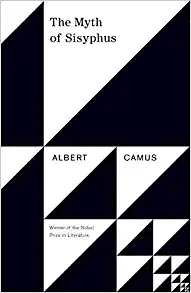
Albert Camus’ famous essay ‘The Myth of Sisyphus’ dives deep into the concept of human existence and its meaning in a world that often appears absurd.
Camus’ existential philosophy argues human beings cannot find true purpose or reason for their lives and must instead humanistically accept the human condition as is.
In this essay, Camus explored a compelling perspective about human existence with an allegory from Greek mythology involving Sisyphus—a man cursed to push an immense boulder up a hill only to see it roll back down over and over again.
This conveys his idea that human existences are, like Sisyphus, futile and without any real purpose, yet the important thing is that we choose to continue on despite our fate.
Camus insisted we imagine Sisyphus to be happy, regardless of his absurd ordeal.
Ultimately Camus concludes there may be no point to life itself, but we have the power to choose how to live it anyway.
‘The Stranger’ by Albert Camus
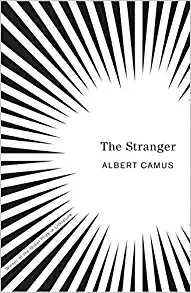
Albert Camus’s “The Stranger” is regarded as a seminal work of existentialist literature.
The novel follows Meursault, a Frenchman who lives an emotionally detached and apathetic life.
Meursault is an ordinary man unwittingly drawn into the senseless murder of an Arab man on an Algerian beach.
In this novel, Camus explored themes such as absurdity, freedom, and the human condition.
Camus’ portrayal of Meursault as a “outsider” who rejects societal norms and values reflects the existentialist belief that in a meaningless world, individuals must create their own meaning.
Furthermore, the novel’s emphasis on the freedom of the individual to make choices and accept responsibility for them is an important aspect of existentialist thought.
Overall, “The Stranger” is regarded as a classic example of existentialist literature, and it is still widely studied and debated in literary and philosophical circles.
Max Stirner’s ‘The Ego and Its Own’

Max Stirner’s The Ego and Its Own is an influential 19th-century work that can be seen as a foundational text of existential philosophy.
Stirner takes the human being at its core, emphasizing the concept that self-assertion and freedom can only be accomplished by recognizing one’s identity as an individual above all else.
This challenges pre-existing concepts of morality and societal standards, proposing that human beings should instead focus on their own goals and motivations.
Stirner draws on both atheistic and humanist ideas, advocating for a form of humanism that elevates us above external forces in defining our lives.
By liberating us from the constraints of society, religion, and any doctrine which we are taught to conform to without questioning, Stirner brings a powerful message of self-determination through his work The Ego and Its Own.
‘Being & Time’ by Martin Heidegger

‘Being & Time’ by Martin Heidegger, one of the foundational works of modern existential philosophy, explores the concept of human beings’ existence and their capacity to shape their individual and collective identity.
In the text, Heidegger argues that as a human being we are ultimately caught in a web of human-created meanings, which can only be accessed through human experience.
Consequently, human beings must embrace a journey of self-discovery as they evaluate and understand their own experiences.
This journey is known as existentialism and is based on human responsibility for their actions and destiny, as opposed to predetermination from outside forces.
By embracing this approach, human beings have access to understanding their own existence in greater depth and recognize their part in forming who they are now.
‘Thus Spoke Zarathustra’ by Friedrich Nietzsche

‘Thus Spoke Zarathustra’ is debateably the best work of Friedrich Nietzsche and presented existentialist ideas in a unique collection of aphorisms.
The novel follows the spiritually-inspired teachings of Zarathustra, a man who has reached enlightenment from a long period of isolation from society and the trials he faces as he seeks to encourage others to pursue self-actualization and reach our potential as a species.
Throughout the work, Nietzsche outlines existentialist philosophy and its implications for everyday life — from his thoughts on death and suffering to the importance of individuality and autonomy.
On top of that, Zarathustra looks into themes like human duty and morality, with the overarching goal of promoting self-actualization through open-minded growth.
Through this narrative and its accompanying philosophical musings, Nietzsche offered an accessible way to understand existentialism – a movement that has become increasingly relevant in contemporary society.
While this book is possibly the magnum opus of Friedrich Nietzsche, I would recommend ‘The Geneaology of Morals’ and ‘Beyond Good and Evil’ as prerequisite reads to ‘Thus Spoke Zarathrustra’
Maurice Merleau-Ponty’s ‘Phenomenology of Perception’
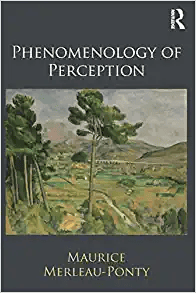
Maurice Merleau-Ponty’s ‘Phenomenology of Perception’ is a philosophical text that examines existentialist thought through the lens of human perception.
Merleau-Ponty argues that consciousness and our bodies are not just two separate entities, but rather a single entity connected by our experience of the world and how it affects us.
He further explains that existentialism is much more complex than simply being aware of one’s existential freedom, as it also entails being conscious and open to being connected with others in the entire world.
By understanding existentialism within this framework, Merleau-Ponty paints existentialism as an inclusive notion which invites us to consider the implications of our own perception and the ways in which we can find meaning in life through connecting with others.
Victor Frankl’s ‘Man’s Search for Meaning’
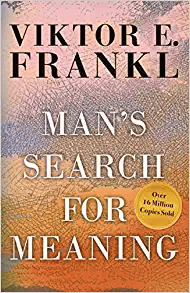
Victor Frankl’s ‘Man’s Search for Meaning’ is a ground-breaking insight into existentialist thought, offering a roadmap to achieving meaning in life.
He emphasizes the importance of embracing existential freedom where individuals are free to assume responsibility and give meaning to their lives.
He argues that suffering can become an existential achievement and imparting a sense of meaning in our lives should be seen as a moral obligation.
We must learn to face our difficulties with courage, self-determination, and resilience, thereby liberating ourselves from existential despair.
Frankl notes that it is ultimately up to each individual to discover what gives meaning and purpose to their life, helping them create positive experiences out of difficult situations.
When we can satisfy this inner need for meaning, despite the sufferings of life, we open ourselves up to joy and fulfillment.
Hannah Arendt’s ‘The Human Condition’

The Human Condition, a classic existentialist text by philosopher Hannah Arendt, is a groundbreaking inquiry into the nature of being human and how existentialist thought plays out in political theory.
Arendt posited that all humans exist within two core conditions or realms – one in which they are present (laboring or working) and another in which they can reflect upon their existence and consider what it means to be human (in action).
Thus, ‘The Human Condition’ delved deep into existentialism as it relates to labor, politics, and our understanding of who we are as individuals.
Arendt’s philosophy sought to integrate existential questions about living an authentic life with the overall condition of being our shared reality.
Furthermore, this work speaks consistently to issues concerning control over freedom, authenticity vs conformity, and individual rights vis-à-vis collective responsibility for each other – whilst also exploring existential themes around personal mortality and awareness of death as part of our very being.
In short, if we wish to understand existentialism then The Human Condition should be demanded reading.
Karl Jaspers’ ‘General Psychopathology’
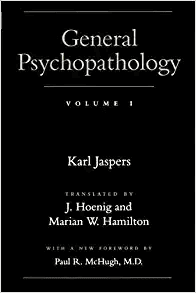
Karl Jaspers’ General Psychopathology revolutionized the study of mental health and illness, introducing existentialist thought in a clinical setting.
Jaspers believed that existential psychology was the only true way to identify and treat psychological disorders due to its focus on ultimate existential questions such as life’s meaning, responsibility, courage and transcendence.
He used these existential insights to bridge the gap between scientific research and philosophical ideas.
Through his work, he argued that everyone has an individual experience of certain universal concepts, emphasizing how each person’s unique worldview impacts their mental health.
By introducing existentialism into his field of psychiatry, Jaspers offered clinicians a more holistic approach to psychotherapy and diagnosis.
‘Existential Psychoanalysis’ by Jean-Paul Sartre

Jean-Paul Sartre’s ‘Existential Psychoanalysis’ examines existentialist thought and how it applies to the psyche.
According to Sartre, existential psychoanalysis seeks to reveal our unconscious ambivalences that are rooted in existential dilemmas.
He argued that our choices, experiences, and interactions with the outside world give rise to existential questions and could cause us psychological discomfort if left unexamined or unaddressed.
By recognizing, exploring, and reflecting on existential issues, individuals can increase their self-awareness and consequently make more meaningful decisions about how to live their lives authentically.
Ultimately, existential psychoanalysis provides individuals with greater insight into themselves and helps them achieve a more fulfilling life.
‘Fear & Trembling’ by Søren Kierkegaard
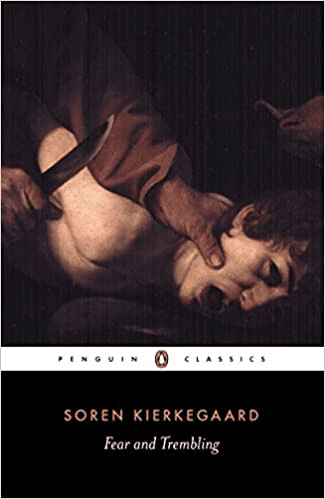
Søren Kierkegaard’s ‘Fear & Trembling’ summarized existentialist thought by exploring the tension between faith and reason.
He proposed that there was a moral obligation to go beyond one’s own understanding of reason and embrace a higher form of understanding associated with faith.
This ‘leap of faith’ requires complete trust in God, as well as obedience and willingness to sacrifice earthly desires in order to follow a divine plan.
Kierkegaard argued that existential living involves recognizing that the individual must be responsible for making decisions without relying on static principles or external guidance.
Ultimately, his philosophy led him to emphasize the importance of personal choice, which he believed should be based on authentic reflection, integrity, and true intention.
‘What Is Called Thinking?’ by Martin Heidegger
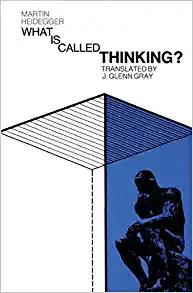
Martin Heidegger’s timeless work ‘What Is Called Thinking?’ explores the definition of what a human being really is and how human thinking, when unconstrained by cultural biases and philosophies, can provide insights into human existence.
Heidegger provides examples of human consciousness and awareness to demonstrate his existential philosophy on the human experience of being in the world.
His ideas are that humans have the capacity to be fully present in the “here-and-now” and to explore life through contemplation of their own finitude and mortality.
In his book, he emphasizes that free thinking is essential in unlocking an understanding of human purpose, meaning, or identity, as opposed to relying upon preconceived notions or constructed ideologies.
Honorable Mentions and Related Reads
In addition to books written specifically about existentialism, there are also many works that discuss related topics such as philosophy, psychology, and sociology which may offer insights into this area too.
Some books in this category include Thomas Nagel’s ‘What Does It All Mean?’, Philippa Foot’s ‘Natural Goodness’, Iris Murdoch’s ‘Metaphysics As A Guide To Morals’, Richard Rorty’s ‘Philosophy, And The Mirror Of Nature’.
Thank you for dropping by!
It means a lot to me that you came by.
I hope you found the books you needed to get started learning about my favorite philosophical movement.
Even when life seems bleak and meaningless, you can always give an essence to your life and create your own purpose.
I hope you can smile like Sisyphus as you push your own boulder up a hill.




